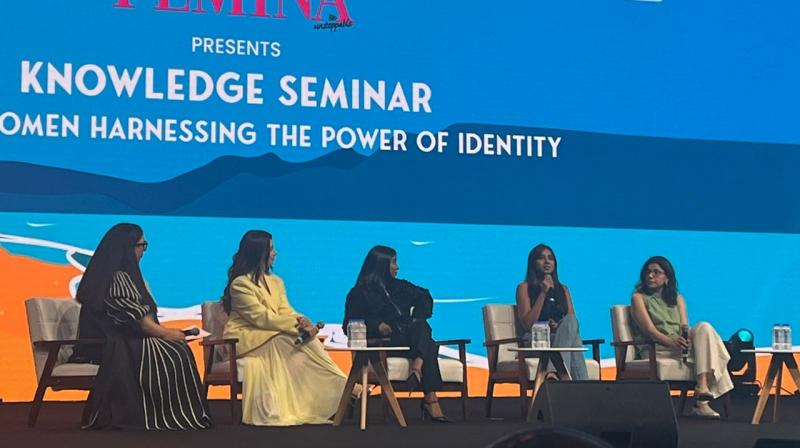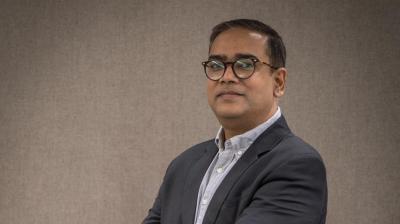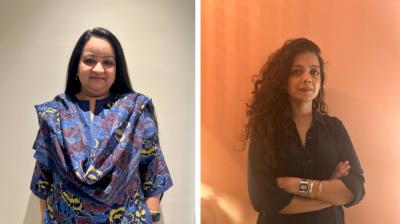The third day of Goafest opened up with an insightful discussion around the changing ideas of identity and narrative, related to Indian women, in a knowledge seminar titled, ‘Indian women harnessing the power of identity.’
The panel consisted of Alankrita Shrivastava, filmmaker; Tamannaah Bhatia, actor; Shilpa Rao, singer; and Prajakta Koli, content creator and actor. The session was moderated by Ambika Muttoo, editor-in-chief, Femina.
Shrivastava kicked off the conversation by explaining the process of writing about women and what it takes to put a real and raw portrayal on screen.
She said, “I never wanted to be a filmmaker just to make films. What is the story that I am telling, whose story am I telling and from what gaze - these factors have always been important. For me, it’s not about that I just want to make any kind of film, it’s about a film that means something to me. And I have always been fascinated by the idea of seeing women in their totality, as complex as it gets. They also have their dreams, heartbreak, desire, and ambition, and everything doesn't necessarily sort of add up in their lives. I also try to steer away from this idea of a very uni-dimensional woman who's very brave or very heroic and see her only in that kind of light, because I do feel that we haven't had enough stories where you just see women for who they are. Basically, for me, it's very important to just dig deeper into what is going on inside the life of a woman and try to bring those stories to the forefront.”
Highlighting the unparalleled opportunities available today in the content creator space, Koli said, “It’s the golden period for making content. There's never been a better time to be a creator than right now. The opportunities are endless and the doors are opening. Everywhere you turn it is beautiful and I am so happy and grateful that I get to be a creator at this point. We are also one of the pioneers in leading the whole digital movement across the world as we are the biggest. That's how you build on content, by just starting. How you stay in it is by making content consistently. I feel like we underestimate the magic of consistency when it comes to content because this platform is so volatile, it's very difficult for you to gauge where you're going, how it's going to work.”
Building on the conversation, Koli spotlighted how social issues can be tackled without getting boxed into a certain type.
"I'm very blessed to have an audience online that engages with me in conversations that matter to us. I could have always spoken about it, but if no one was speaking back to me, that conversation would make no sense and get nowhere. It started with body positivity and then kind of moved into a lot of different things. Also, platforms have been extremely supportive of giving creatives like me a voice to speak. I have a lot of gratitude towards YouTube and Google for giving me platforms over and over to kind of speak about it. That came together very organically for me. That's why it's easier for me to stay in the conversations and not get boxed into a type. And as long as you're honest with yourself, there's no way you can get boxed. That's the beauty of the Internet, that everybody brings their personality. Two people could be doing the same content, but if you bring yourself to it, your content is going to look different from everyone else's.”
Bhatia mentioned how charting out a path that feels true to one’s core identity is extremely important in today’s time.
She noted, “The reason I could truly find who I was because I didn’t confine myself with any identity to begin with. I always took every opportunity and turned it around and made it the best possible that it could be. As women, our fluidity and our vulnerability are our biggest strengths, and it's only about how we can use that to our benefit and not make a pity party out of it.”
Rao reflected on what it takes for a voice or an identity to stand out in a strong and meaningful way. “We all have limitations as people. The more you accept it becomes a part of your uniqueness. I think the more you accept yourself that this is what I can do and this is what I cannot do, the closer you get to that, it’s a nicer comfortable space to be,” she asserted.
The panellists then went on to discuss how people become brands for others.
Rao voiced, “When people start copying your limitations, you are a brand. Whether you realise it or not, you are a brand, even with your limitations.”
Focusing on how it is more about giving, Bhatia pointed out, “If you want to become a brand, you first need to learn to give. This is what I have realised working with all the brands I worked with, working with all the creative people that I worked with. Whatever you want back, you have to first give it. And with all the brand work that I did, I always heard people out, got what they were saying, and then I tried to create what I thought out of it and give it back with that. With that what happens is, that you make human connections. And I feel like that is the core of becoming a brand. People today want to own a certain brand not because of just the product, but it's also about what it makes them feel. And if we cannot focus on what the things that we're trying to sell make the people feel, it's never going to have that aspirational value. I've had the good fortune of endorsing so many multinational brands, and I've been able to do that only because I was listening to everybody and I was constantly understanding people.”
Shrivastava opined, “For someone like me, a brand is more like, can you be authentic in your work? And I wonder whether there should be any boundary between who you are and the work that you put out. I do feel that what you stand for and who you are, for me, is connected.”
Koli added, “If you have an impact, be it good, bad or ugly, you are a brand. We are in such a democratic consumption pattern and I feel very happy because stories are working only if the audience like it. Beyond a point, all the marketing, promotions and money you pump into getting everything that you need is going to flatline if your audience does not push it further from there. If you can be a catalyst in making a difference in what happens then that means you have impact and influence. So, if you reach that point, I believe then you are a brand.”
On a concluding note, the panellists delved into the topic of how the role of women has evolved in advertising and their role in decision-making.
Shrivastava said, “Earlier in advertising, women were often shown only as homemakers and always like the person who's bringing the food or cooking in the kitchen and bringing the food to the table. Not that one should not respect homemakers, but it was like a constant repetition of that kind of representation. So I think those things have shifted gradually. There are more working women than you see in advertising. You also see more men helping out in household chores, dads’ dropping off their kids to school which was an imagery which earlier was not very prevalent.”
Citing the example of Cadbury ads, she added, “The iconic Cadbury ad, which initially had the guy playing cricket and the girl going and running onto the field has now reversed wherein they have the girl playing cricket and the guy runs onto the field. I do feel things have changed but I also feel that we are still very content with a safe kind of feminism that sometimes it’s tokenism. Eventually, things will change only by challenging the status quo in a harder way, because the power structures are very entrenched. There’s always this thing of playing safe. I do feel there’s sort of a safety net within which corporate feminism functions.”
Urging more women to be the change they want to see, Bhatia mentioned, “Definitely, right now, the present environment is giving a lot more opportunities to women than it ever has. But you see, there is a bit of a grey area because for anybody to experience that shift in their lives is only when we shift from our mindset. Our country is huge and I don't think when we talk about steps forward, it is individual. If we want to see the change in the power that we want for women coming into actual positions of power, it will happen when more women become that shift. That is the bigger problem. Yes, there has been a shift but it only comes into experience for those people who have made the shift within themselves. As the environment is so fertile, this is the only time it's going to be the reality. Otherwise, it's only a conversation that we're having because it's a good thing to talk about.”

.gif)










